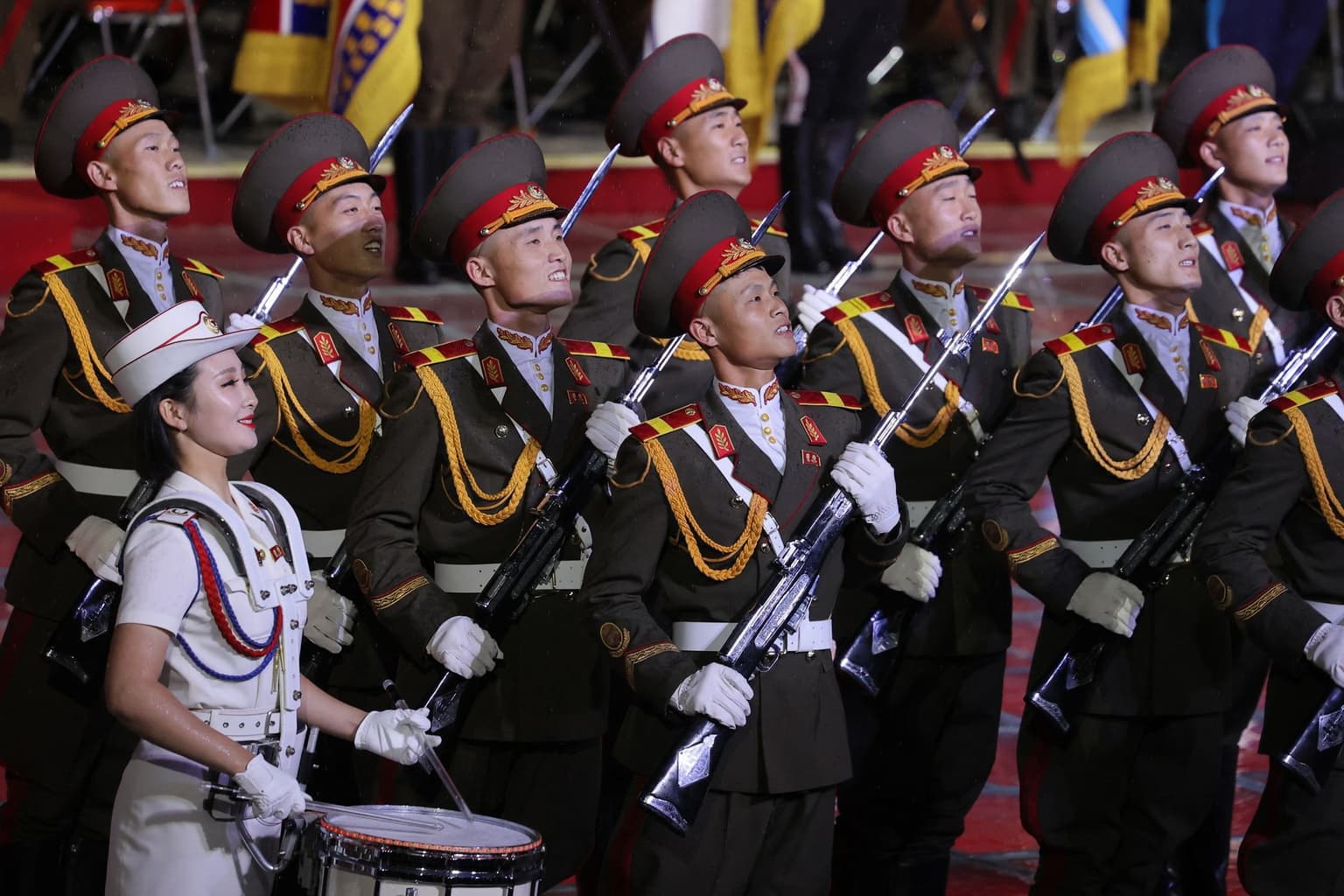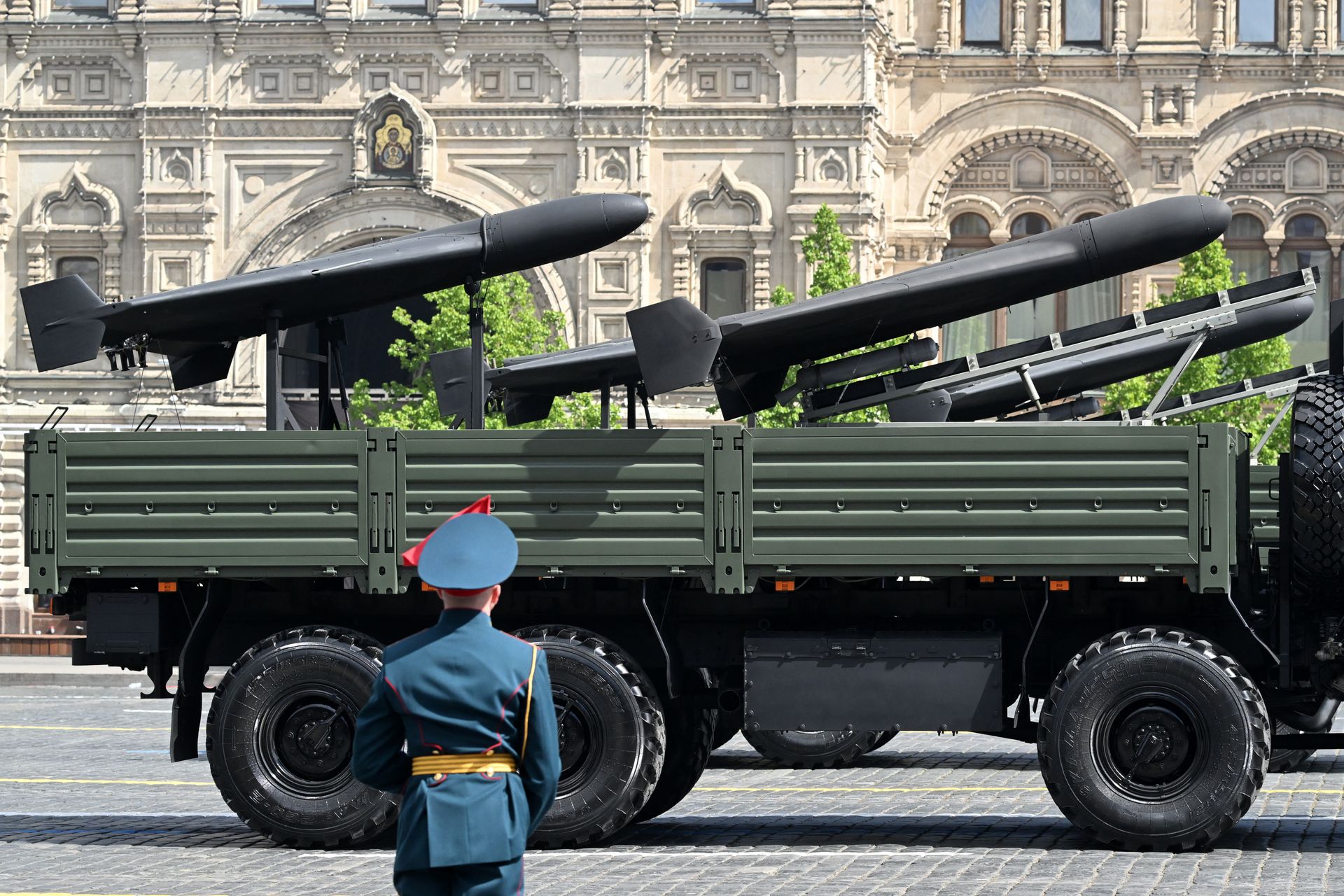North Korea displays new ICBM during parade with Russia's Medvedev in attendance

North Korea showcased its latest military hardware during a parade marking the 80th anniversary of the ruling Workers' Party of Korea, North Korean state news agency KCNA reported on Oct. 10.
The parade, attended by Chinese Premier Li Keqiang, United Russia party leader Dmitry Medvedev, and representatives from several Asian countries, featured a display of advanced weaponry.
Among the systems presented were hypersonic medium-range ballistic missiles, missiles equipped with hypersonic glide warheads, and Hwasong-20 intercontinental ballistic missiles (ICBMs), described by KCNA as North Korea's "strongest nuclear strategic weapon system."
North Korea unveils the Hwasong-20, a new solid-fueled ICBM, hailed as its most powerful nuclear weapon yet.
— Clash Report (@clashreport) October 11, 2025
The three-stage missile can allegedly reach the entire U.S. mainland (up to 15,000 km) and carry multiple nuclear warheads (MIRVs).
It uses a new high-thrust solid-fuel… pic.twitter.com/NElr66b1KQ
The new Chonma-20 main battle tanks and North Korea's unique 600 mm multiple launch rocket systems (MLRS), which Western analysts classify as short-range ballistic missiles, were also on display.
During the military parade, North Korean dictator Kim Jong Un delivered a speech praising North Korean troops involved in operations abroad, offering what state media KCNA described as "warm encouragement."
North Korea has become a key ally to Russia during the full-scale invasion of Ukraine, deploying thousands of troops in combat and providing artillery and ballistic missiles.
"Our army should continue to grow into an invincible entity that destroys all threats," Kim said.
Kim also met with Medvedev and expressed hope for deeper military and political cooperation between the two countries.
Medvedev, in turn, praised the "courage" of North Korean troops fighting alongside Russian forces in the war in Ukraine.
The former Russian president added that their participation demonstrated the strength of the "brotherly ties" between Pyongyang and Moscow, as well as the "invincibility" of their strategic alliance.
Russian President Vladimir Putin previously met Kim while he was visiting Pyongyang in June 2024 to sign the Comprehensive Strategic Partnership Agreement, a deal that stipulated mutual support if one country is attacked and preceded the dispatch of North Korean troops to Russia.
Kim initially dispatched around 11,000-12,000 troops to Russia in late 2024 to help fend off a Ukrainian incursion in Kursk Oblast.
A senior Western diplomat told the Kyiv Independent that North Korea could have sent even more troops, with Ukrainian officials estimating Pyongyang's contribution to be between 20,000 and 30,000 soldiers.
South Korea's National Intelligence Service estimates that some 2,000 North Korean soldiers have been killed in the war.














